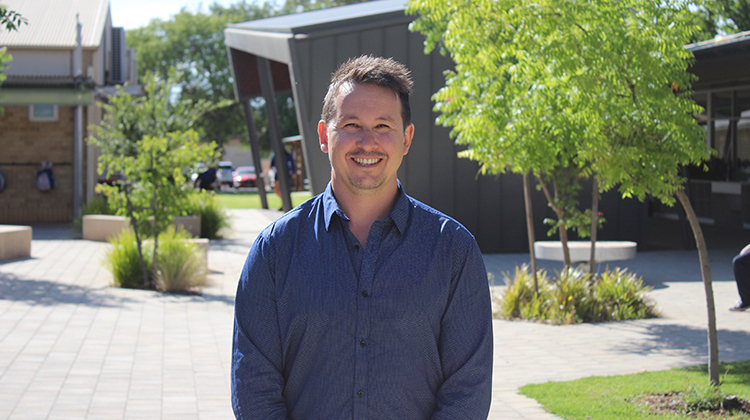After Flood a School’s Psyche Needed Help to Move on

The Murray River floods a year ago laid waste to communities like Berri in SA, as the mighty river’s slow, unstoppable rise burst a succession of levees it ultimately went on drown homes and businesses.
The catastrophe also left the community’s psyche damaged and, like the sodden town, the people of the area’s spirit and wellbeing needed to be fixed.
“Our community faced significant disruptions due to limited access to surrounding towns, as river crossings were not possible and functional bridge facilities were farther away. This situation also affected recreational activities, such as fishing and skiing, and some families were displaced from their homes for a period of time,” says Clint Ridgway, Principal at Berri Secondary College.
The flood was not the only problem Berri Secondary College and the wider community faced, like many rural schools, staff and social issues are front and centre.
Ridgway says, “We have been a trauma-informed school for the past seven years. However, with increasing staff turnover and the ongoing need to train new staff, we encountered challenges in maintaining consistency across the school. This inconsistency impacted our ability to adequately support our students' wellbeing. Consequently, in 2022, our executive leadership team decided to reallocate some classroom resources to establish a wellbeing hub, aimed at providing immediate support to our students.”
Within the school-based Wellbeing Hub, school leaders and Youth Workers are always accessible, supplemented by a doctor on campus, psychologists, and other allied health professionals through an internal referral process. Over the past three years, the Hub has expanded significantly; it now employs eight Youth Workers, administrative support staff, three Assistant Principals, and three Year Level Leaders.
“The implementation of the doctor on campus initiative has faced challenges due to resource availability in rural areas. However, our partnership with Schools Plus - the charity provides funding for projects identified by schools - has enabled us to engage skilled practitioners, such as a psychologist who travels three hours from Adelaide for scheduled sessions as part of our Doctors on Campus program.
“Proactively, our Wellbeing Hub monitors trends to support students effectively, implementing continuous intervention programs that promote wellbeing and engagement. These include breakfast programs, mentoring, social and emotional skills development, one-on-one case management, and support for transportation and home visits,” Ridgeway says.
The success of the school-based Wellbeing Hub hinges on its ability to provide immediate support for students facing a range of needs - from medical care to emotional distress such as anxiety, hunger, anger, or general upset. It's a place where students can receive help in managing any aspect of poor wellbeing. Importantly, the Hub fosters a sense of belonging, empowering students to seek help confidently and know where to find the support they need.
“Parents have expressed immense gratitude for this initiative. Students are often adept at masking their struggles, and many parents might not realize their child is facing difficulties. The Wellbeing Hub plays a crucial role in bridging this gap, especially as many families navigate the broader societal challenges that impact us all.
“The Wellbeing Hub is a permanent feature at our school. Given the limited availability of space, we have prioritized the establishment and maintenance of the Hub over other facilities such as administrative offices, meeting rooms, and additional student services. This decision shows our commitment to our student wellbeing as a key priority at our school.”
The disaster and its resolution underlined the profound importance of prioritising student wellbeing as an integral part of Berri Secondary’s educational framework.
“The challenges we faced highlighted the need for robust support systems that are adaptable and responsive to the unique and evolving needs of our students, particularly in times of crisis. By shifting resources to strengthen our Wellbeing Hub, we ensured that every student had access to immediate and comprehensive support, whether that be emotional, psychological, or physical."
The hub is a valuable institution at the school but would not have been possible if Schools Plus hadn’t made funding available.
“This experience has also taught us the value of community partnerships and the power of collaboration. Working closely with organisations like Schools Plus enabled us to augment our capabilities and offer specialised services that were beyond our immediate reach, such as access to psychological support from professionals commuting from distant locations.
“Moreover, it’s reinforced the necessity of ongoing staff training in trauma-informed practices. Ensuring that every member of our staff is equipped to recognize and respond to signs of distress and trauma in students is crucial, not just for recovery, but for fostering a resilient school community that can adapt and thrive in the face of future challenges,” Ridgeways says